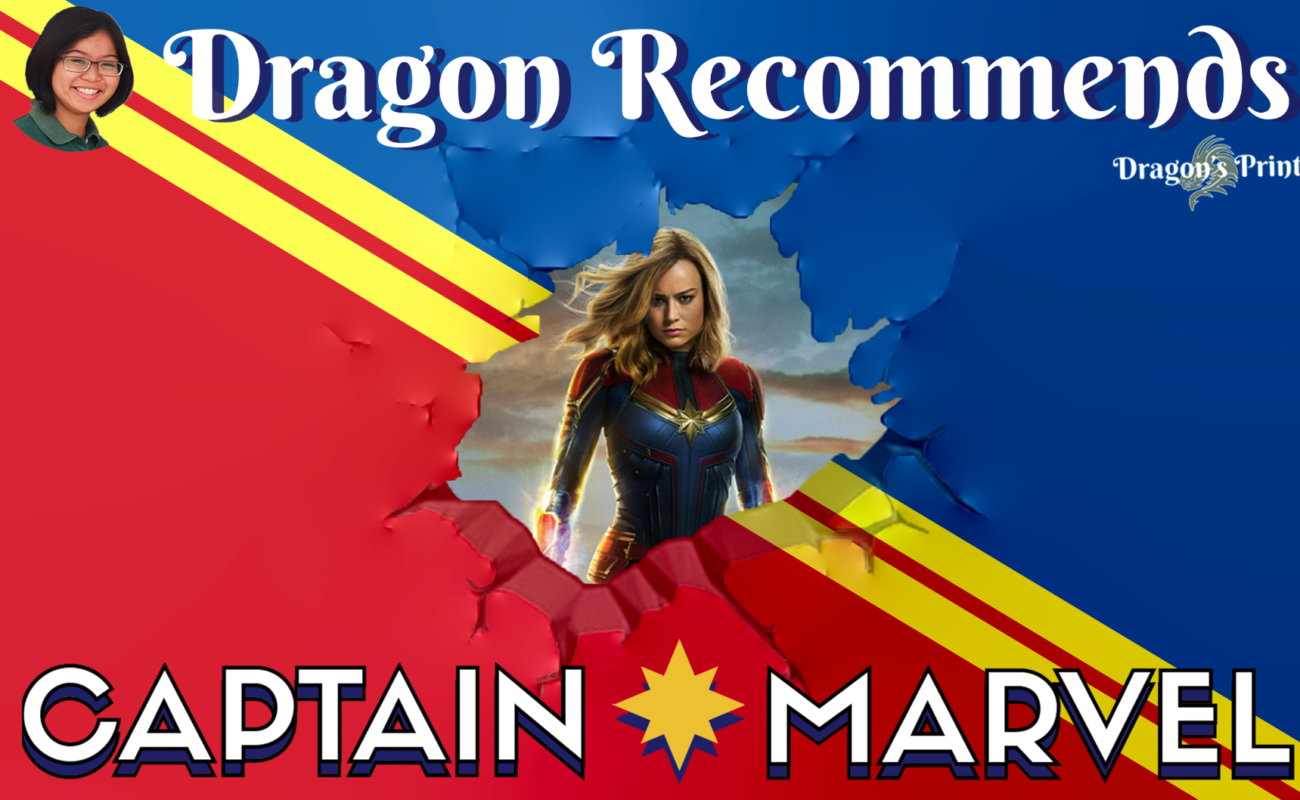“Our one-woman security force” — is how Nick Fury describes Carol Danvers in Captain Marvel, the latest Marvel movie to hit the theaters. And one-woman force she is, as Captain Marvel manages to break barriers and call out her opponents for nearly two hours by herself without breaking a sweat. The first solo female superhero film in the Marvel Cinematic Universe is a timely, compelling tribute to women, for no longer are they merely plot devices; they are the essence of the story.

A short run-down of the movie plot: Vers (played by an indefatigable Brie Larson) is a young woman in the Starforce, a Kree group fighting against alien shapeshifters called Skrulls in an intergalactic war. She can shoot photon blasts with her hands (among other superpowers) but doesn’t know why. She only has glimpses of her former life as a US Air Force pilot. When she crashes to Earth in a mission gone wrong, she meets S.H.I.E.L.D. agent Nick Fury (Samuel L. Jackson, but 25 years younger) and together they discover her past and her true identity. With this newly acquired information, Vers has to decide where her loyalties lie and how to use her powers to end the Kree-Skrull war for good.

Though Fury appears in nearly every scene with Captain Marvel, he never actually does anything of significance; if you’ve seen the film, you’ll know that he’s just a glorified nanny to a cat named Goose (who isn’t even a real cat, but that’s another story). No, it’s Captain Marvel at the forefront of the narrative, and she decides her own future by herself. Unlike the female superheroes before her, she saves the world—and herself—without an ensemble of heroes or sidekicks. In fight scenes, she is outnumbered by both human and non-human beings and confronted by tens of hundreds of alien ships, but she holds her own each time and never once calls for help. Where the Wasp had Ant-Man (Ant-Man and the Wasp) and Scarlet Witch had Black Widow and Okoye (Avengers: Infinity War) for backup when things started going downhill, Captain Marvel had no need of another person to help her beat her enemies. Why would she, when her power comes from within and everything she needs is inside of her? It’s an empowering message that’s especially driven home by the blasting of No Doubt’s “Just A Girl” during the most important fight scene of the film. I won’t spoil you what happens exactly, but it makes every person in the audience decidedly convinced that the most formidable woman you’ll ever encounter is the one who knows exactly what she’s capable of.

This fierce independence is also made more evident when you realize that this is the first Marvel film without a love interest. Vers’ character is a far cry from that of other women in the MCU such as Pepper Potts from the Iron Man movies and Peggy Carter of the Captain America trilogy; though the latter two are inarguably worthy of their own films, they’re mainly used to drive the plot for their male counterpart. Captain Marvel effectively does away with this “damsel-in-distress” trope by getting rid of female stereotypes, i.e. needing a man to be interesting and letting emotions overpower her. The two male characters who reappear continuously throughout the film are Nick Fury and Yon-Rogg (played by Jude Law so well that it’s easy to hate him), but the former merely seems as if he’s there just to show the connection to S.H.I.E.L.D. and even has some deprecating jokes about “young males” made at his expense. On the other hand, the latter is Vers’s mentor while she was in the Starforce and clearly embodies the generic insecure male every woman has encountered in the pursuit of her career. Yon-Rogg repeatedly tells Vers to control her emotions as they would be her downfall, a phrase that is exasperating in its familiarity. He constantly lords his dominance over her and convinces her that she will never be good enough. After Vers realizes her worth (and deservedly so), she meets him again in what would be their final confrontation, and the way she crushes his toxic masculinity is simply glorious to watch.

Equally important in Captain Marvel is the heroine’s interaction with the other women in her life. Annette Bening plays Dr. Wendy Lawson, Vers’ former boss in the US Air Force. Lawson gives Vers the chance to train in the military during a time when women were looked down upon for even thinking about doing so. As a result, Vers deeply admires Lawson, and it is Lawson’s form that the Supreme Intelligence (the artificial intelligence who rules the Kree) takes when speaking to Vers. Aside from that, we also meet Maria Rambeau (played by the tenacious Lashana Lynch), Vers’s closest friend in the Air Force. Rambeau is a smart, determined African American woman who provides the sisterhood that Captain Marvel needs to stay grounded and in touch with her humanity. Their friendship is unconditional and unwavering and is what makes up the more moving scenes in the film. We can see that Captain Marvel isn’t solely about the titular heroine: it’s a celebration of all the strong women in our lives, and I mean all: Gemma Chan of Crazy Rich Asians fame plays a skilled Kree sniper (she’s nearly unrecognizable underneath the blue body paint, but it’s Gemma nonetheless) and leads the Starforce during a particularly intense chase that also involves Rambeau. Her character is there as a reminder that women are equally capable of doing damage on the other team, and it’s also a nod to the other big and small female villains of the MCU – Hela (Thor: Ragnarok), Proxima Midnight (Avengers: Infinity War), and Ayesha (Guardians of the Galaxy: Vol. 2), to name a few.
Additionally, Rambeau’s bright-eyed daughter Monica is a source of delight and hope to those around her: there’s a poignant moment towards the end of the film where Monica resolves to meet “Auntie Carol” halfway into space. Naturally, the adults humor her, joking that she has to learn to how to fly before that happens, but she persists: “Or maybe I’ll build a spaceship. You don’t know.” We don’t know, indeed.
“Captain Marvel had no need of another person to help her beat her enemies. Why would she, when her power comes from within and everything she needs is inside of her?”
Ultimately, Captain Marvel is a clarion call for women to be taken more seriously and to be seen as more than just their gender. Its positive message should have been put out a few decades earlier, for sure, but it fits nicely into the pressing narrative that is currently being written in today’s zeitgeist. Of course, it’s not a perfect film: at times there are uncanny Star Wars vibes, the plot feels a bit too fast-paced, and the Guardians of the Galaxy films do an immensely better job at incorporating pop culture references and throwback music. Nevertheless, Captain Marvel wins points for its bravery, grit, and audacity to be female in a male-dominated world, both on and off the silver screen.

Reviews are uncommissioned, unpaid, and represent the personal views of the author. They should not be taken to represent the views of Dragon’s Print and Cebu International School as a whole.
Written by Axelle M.
Feature image by Katrina R.
![]()



Leave a Reply